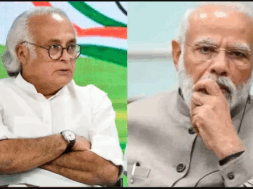
COVID-19: As infections soar, UK back in lockdown till mid-Feb
Virendra Pandit
New Delhi: With the discovery of a new, more contagious strain and the number of daily COVID-19 cases in the United Kingdom topping 50,000 for the seventh day in a row, Prime Minister Boris Johnson on Monday announced a nationwide lockdown, effective Wednesday.
Around 56 million people in England will return to a full coronavirus lockdown, possibly until mid-February, to try to cut spiraling infection rates, media reported on Tuesday.
The new measures are similar to those clamped during the first, three-month lockdown from late March to June 2020. They include the closure of schools, working from home wherever possible, limits on leaving home, except for exercise, essential shopping and for medical supplies, and no household mixing.
The lockdown measures, including the closure of schools, will come into effect Wednesday, he said in a televised address, after Scotland announced similar measures from midnight (0000 GMT) on Tuesday.
Nearly three-quarters or 44 million people of the English population are already living under the toughest restrictions, as Britain grapples with one of the worst mortality rates from coronavirus in the world.
Despite efforts, the UK has failed to halt an upward trend in COVID-19 positive cases. A more infectious new variant of the disease is seen as the cause of the recent spike in cases.
As of Monday, nearly 27,000 pandemic-afflicted people were in hospitals. This was 40 percent more than at the peak of the first wave of the outbreak in April 2020. Last Tuesday, over 80,000 people tested positive in just 24 hours, media reported.
“With most of the country already under extreme measures, it’s clear that we need to do more, together, to bring this new variant under control while our vaccines are rolled out,” the British PM said.
“In England, we must therefore go into a national lockdown.”
Ahead of Johnson’s announcement, the chief medical officers of England, Scotland, Wales and Northern Ireland said the country had moved to the highest coronavirus level five, which means the state-run National Health Service (NHS) is at risk of being overwhelmed within 21 days if no action is taken.
The PM said the fresh restrictions could be lifted after the next school holidays in mid-February and warned that the weeks ahead “will be the hardest yet”.
He also referred to the roll-out of two COVID-19 vaccines, including one developed by Oxford University and AstraZeneca, which could see the four most vulnerable groups inoculated in the next six weeks.
On Monday, the government recorded 58,784 new coronavirus cases within 24 hours – the highest daily total since the start of the pandemic. A total of 75,431 people had died of the pandemic in the UK.
The latest data shows a 41% rise in the number of confirmed coronavirus patients in hospitals in England, between Christmas Day and January 3, which set off alarm bells in the government.
Britain will procure 100 million doses of the newly approved vaccine, which is cheaper and easier to use than some of its rivals. For example, it does not require the super-cold storage (minus 80-degree Celcius) needed for the Pfizer-BioNTech vaccine, which has also approved for use in the UK.












